commentary Commentary
Commentary: Seeing Singapore in a Chong Pang hair salon
While a brand new integrated mall with swimming pools and gyms may be an important part of urban rejuvenation, there is something special about an ageing estate, says CNA’s Crispina Robert.
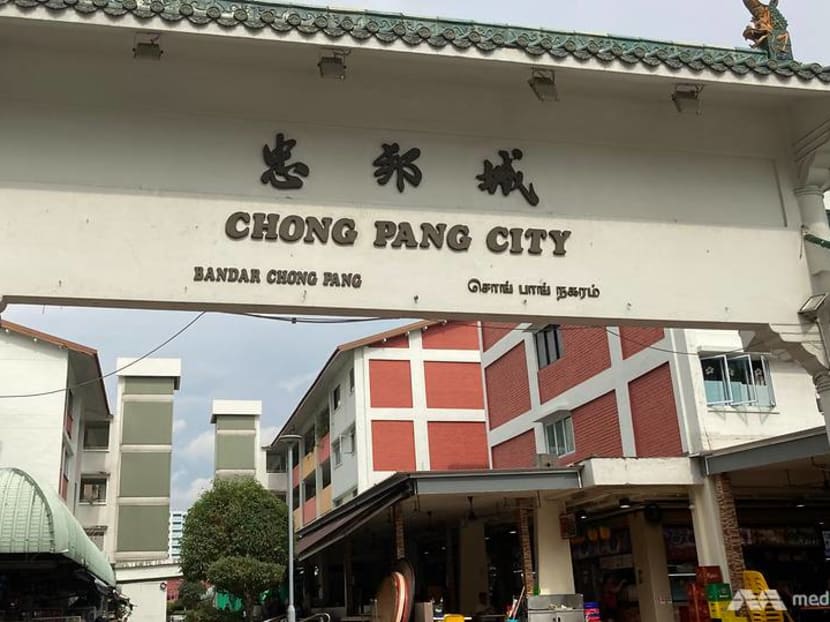
File picture of Chong Pang City. (Photo: Crispina Robert)
SINGAPORE: The hair industry in Singapore has to be one of the most robust, recession and pandemic-proof sectors.
I live 500m away from Chong Pang City. It is essentially a square, like many neighbourhoods in Singapore. Within a 1km radius, there are at least 10 salons.
In Singapore, a haircut can cost as little as S$5 or as much as S$500. You can sit in a plush leather chair with comforting tunes and warm tea, or you can play musical chairs in a crowded one where there is not a minute to linger.
For a long time, I was somewhat of a wanderer – grazing in a range of hair salons and not quite content on settling on one.
But seven years ago when I moved into my home near Chong Pang City, I found the most chaotic hair salon I have ever seen. They have now become my go-to place. And I have not looked back since.
A CLASH OF COLOURS
The first thing anyone notices when you walk past this salon is how crowded it is. Until safe entry and temperature requirements kicked in, there was no discernible queue or crowd control system.
People showed up, caught the eye of one of the staff and after some yelling about whether there was space, you were shoved in.
The standard greeting is “What you want to do girl?” (Even if I have long passed girlhood). And then another round of yelling about which stylist to assign and you were shown a seat.
READ: Commentary: Stress-related hair loss on the rise this COVID-19 outbreak
Now, in most salons, you would stay in one seat for the entire session. Not here.
Space is a premium and things move fast. You need to wait the colour to set? Well, move out and sit outside in the open area near the pavement, tin foil on your head notwithstanding.
Done with the wash? Move over to another empty seat. If you are in there for anything more than 45 minutes, you can expect to change seats at least three times, meaning, you have to travel light and bring your bag along with you every time you move.
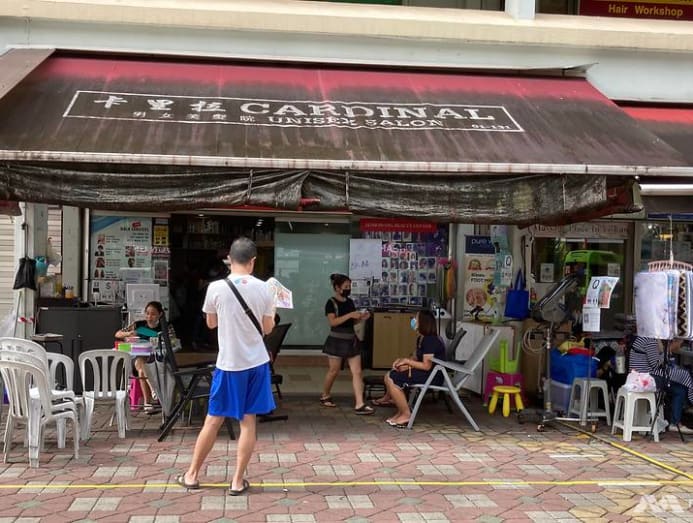
A big draw in a place like this is the price. Basic cuts start at S$5. Usually, the work is done and dusted in under 15 minutes.
To me though, the most interesting thing about this place is that it is a window to the heart of everyday Singapore.
READ: Conserving Singapore's built heritage: What it takes to keep the old while building the new
READ: Commentary: Will COVID-19 spell the end of strata malls?
MAKING WAY FOR SOMETHING NEW
On Sep 8, Nee Soon Member of Parliament K Shanmugam announced plans for the 40-year-old Chong Pang City. It would be rejuvenated with a new integrated development that would include a revamped community club, a refreshed market and hawker centre, and facilities such as swimming pools, gyms and more carpark lots.
The development, to be called Chill @ Chong Pang will be ready in 2027. In the process, the current stall holders will be compensated as they move away from their old premises.
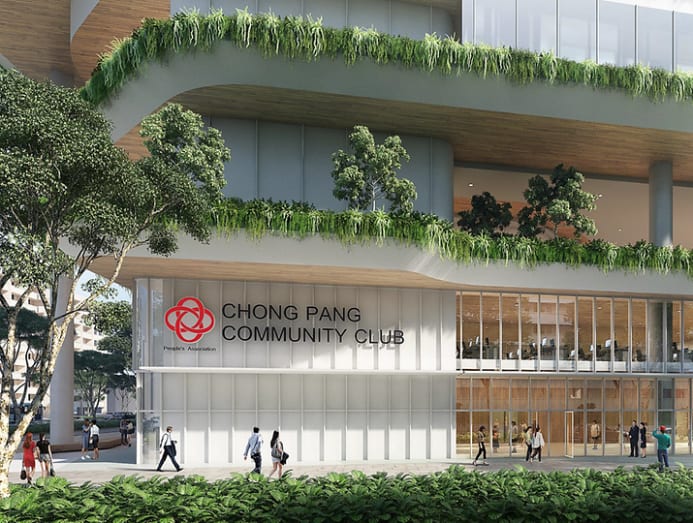
Improving old neighbourhoods is something we do regularly and for good reason. Prime Minister Lee Hsien Loong announced the Remaking Our Heartland programme at the 2007 National Day Rally.
The idea was to uplift and improve ageing neighbourhoods with better-connected pathways, gardens, markets and shops and these mirror the changing profile of residents too.
Punggol, Yishun, Hougang and Jurong are some of the many places to see changes. The Jurong Lake District revamp, to me, stands out as a masterclass in thoughtful urban planning that created something new out of ageing infrastructure.
The biggest drawback however is sometimes, in completely renovating an old estate, roots can be pulled out together with the weeds and in time, there is nothing left for older residents like myself who want to revisit places that once gave them joy, sadness, or love.
THE SOUL OF A CITY
For instance, I cannot imagine that the hair salon I go to will remain the way it is in a new building. As befits a modern design, it will become air-conditioned, clean and utterly sensible, in the way that most mall salons are.
Sure, a young person might prefer this experience but so much of how authentic these experiences are in an old estate will be lost.
READ: HDB touts 10-year plan to green public estates
READ: Commentary: How much should young couples spend on their first home?
There is little chance of an old man getting a haircut without leaving his wheelchair – because the stylist has the flexibility to deliver a service he needs, right there on the pavement and sweep everything away afterwards.
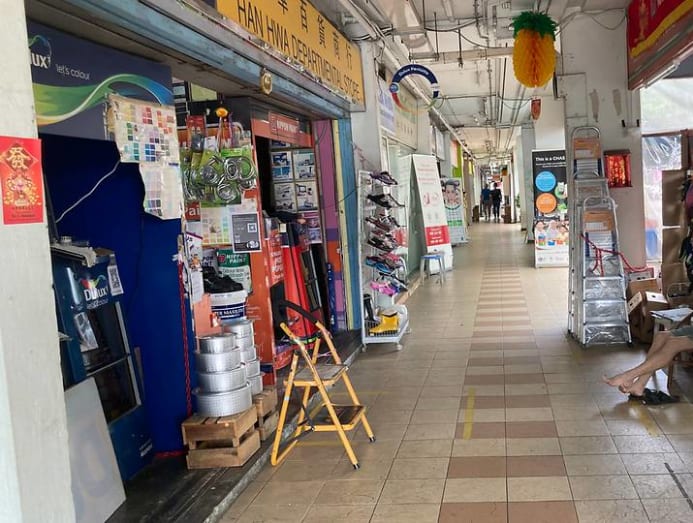
Cost is also an issue that will change the dynamics. At the Chong Pang food centre, you can get a meal for S$2, hawkers know their customers by name and there’s something comforting about this relationship, as so many of these were cultivated over the years.
If this transforms into a food court and these hawkers leave, those invisible strings that bind a community can be cut off.
At this hair salon I frequent, a large number of customers are regulars. I suspect they come for the companionship and camaraderie as much as the service.
When I was there recently, an elderly customer told the stylist that the girl he was assigned to the last time he came was “no good”.
She chuckled and said, “Okay uncle, I make you handsome.” In under 15 minutes, his hair cut was done. “How? I think you look handsome,” she said as he examined his cut in the mirror. He nodded and fished out a 4D slip from his shirt pocket.
Folded inside the slip was a S$5 note and a S$10 note and he gave her both. “Nah, the S$10 for you,” he said. His hair cut was S$5. She smiled and helped him out as he made his way with his cane.
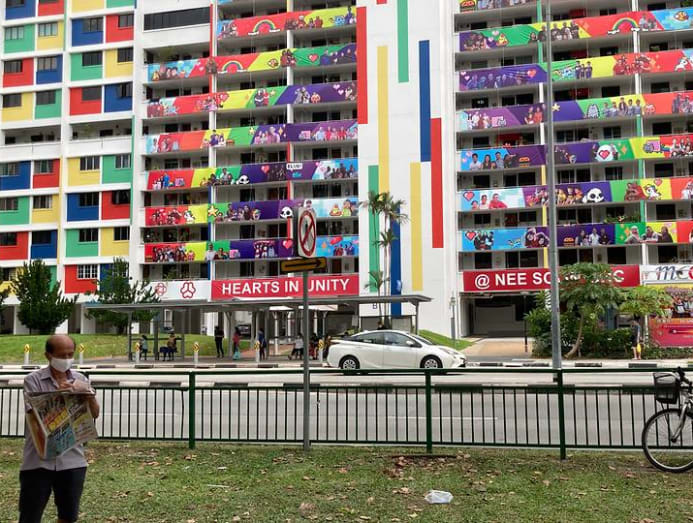
Over the years, I have heard customers and stylists share stories of their lives – snippets of daily domestic troubles like children who fail exams, elderly parents who are hard to care for or municipal matters like clogged pipes and tripped wires.
BALANCING THE OLD AND THE NEW
The Urban Redevelopment Authority (URA) has awarded over 7,000 buildings conservation status. Much of these have deep historical value and nested in our old districts like Chinatown, Kampong Glam and Little India.
So we are conscious of preserving much of what we want to remember. The devil, however, is in the details. To me, the most difficult knot to untie is how to change without losing too much of what already exists that holds meaning and value to the people in the community.
In a Talking Point feature done about three years ago, residents were interviewed about the gentrification of their neighbourhoods.
One resident of Tiong Bahru estate, Carolyn Oei rued the influx of hipster cafes selling S$6 coffees but there was one lone provision shop left intact.
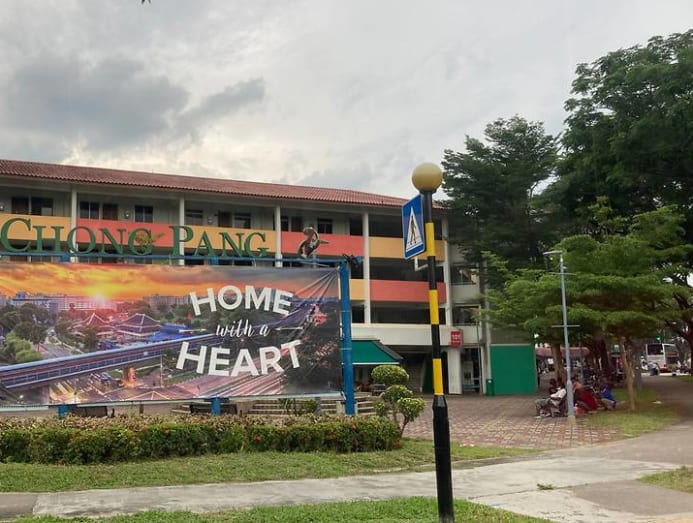
I am sure it is a wicked challenge for developers and designers over how to keep an old provision shop intact while completely refurbishing everything around it. I suppose this is where our collective interest, creativity and commitment can come in.
To begin with, we need to be mindful of what we will lose when we remove, renovate and rejuvenate. In planning and executing, we must try our best to keep alive the very thing that makes a neighbourhood a community.
To me, in the cacophony that is this salon at Chong Pang, lies the beating heart of a real Singapore. And should they be lost some day to a shiny new mall, I may well shed a few tears.
Crispina Robert is an editor at CNA Digital News where she oversees podcasts.





